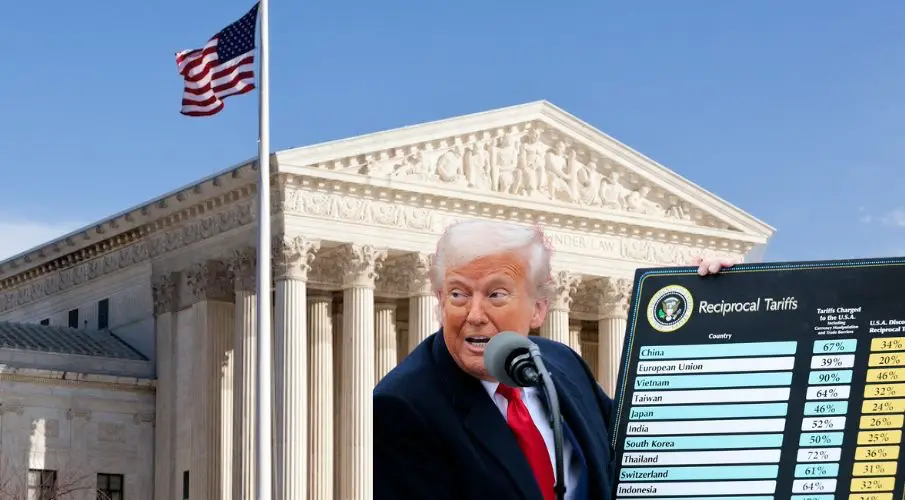Donald Trump has turned the tariff policy of the United States into an art of exercising power. Where previous presidents negotiated, he threatens. Where others used sanctions or diplomacy, he swings the tariff hammer. In his second term, import duties have become not only part of his economic policy but the centerpiece of his foreign policy - a tool with which he enforces ceasefires, pressures governments, and punishes political opponents.
He imposed punitive tariffs on Canada because a province aired a television ad against his trade policy. He used them against Brazil after its judiciary convicted one of his allies. He forced Europe into a "security deal" by threatening 30 percent tariffs - and Brussels gave in to preserve NATO relations and support for Ukraine. For Trump, tariffs are not economic corrections but political instruments of pressure. Yet now this system of economic coercion faces its greatest test. The Supreme Court of the United States is hearing this week whether the president exceeded his powers by invoking the 1977 Emergency Economic Powers Act. Two lower courts have already ruled that the constitutional right to set tariffs lies with Congress. If the highest court upholds that position, Trump would face a historic defeat - not economically, but in terms of power.
He himself calls the case one of the most important decisions in American history and warned on his flight to Washington of a "disaster" should the court revoke his emergency authority. Officially, he said he would not attend the hearing to avoid influencing the justices - but in truth, the nervousness is palpable. The Department of Justice defends his policy by arguing that tariffs are part of the president's foreign policy authority, into which the judiciary should not interfere. Critics see in this the most dangerous expansion of presidential power in decades. "Presidents have used tariffs as a scalpel, not a sledgehammer," says former U.S. diplomat Josh Lipsky.
In fact, Trump has sharpened the instrument into a political weapon. For some nations, the threat of tariffs has been reason enough to align more closely with Washington; others have sought closer ties with China, which now presents itself as the guardian of free trade. In the United States itself, many companies have passed the higher costs on to consumers - the tariff war has long been hitting the American people. And yet the outcome remains uncertain. Some experts believe the Supreme Court may once again grant Trump free rein - out of deference to the emergency powers the law grants him. Should that happen, it would not only be a triumph for the president but also a precedent that shifts the balance of power in America. But if the court stops him, it would strike not only at his economic policy but at the governing principle of his entire presidency - rule by decree.
Between the two lies more than just the future of American trade policy. It is about the question of whether a president still knows boundaries - or whether the Supreme Court is about to abolish them altogether.
Investigative journalism requires courage, conviction – and your support.
Please also strengthen our journalistic fight against right-wing populism and human rights violations. We do not want to finance ourselves through a paywall so that everyone can read our research – regardless of income or origin. Thank you very much!


Zölle wenn er beleidigt ist, Zölle als Erpressung, Zölle um einstige Verbündete vor den Kopf zu stoßen.
Back to the 1915’s … wo Zölle den US Bürger die Einkommenssteuer erspart hat.
Die letzten 100 Jahre hat Trump wohl ausgeblendet ……
Leider ist zu erwarten, dass der Marionetten Supreme Court Trump bestätigt.
…wird auf jeden fall spannend am mittwoch